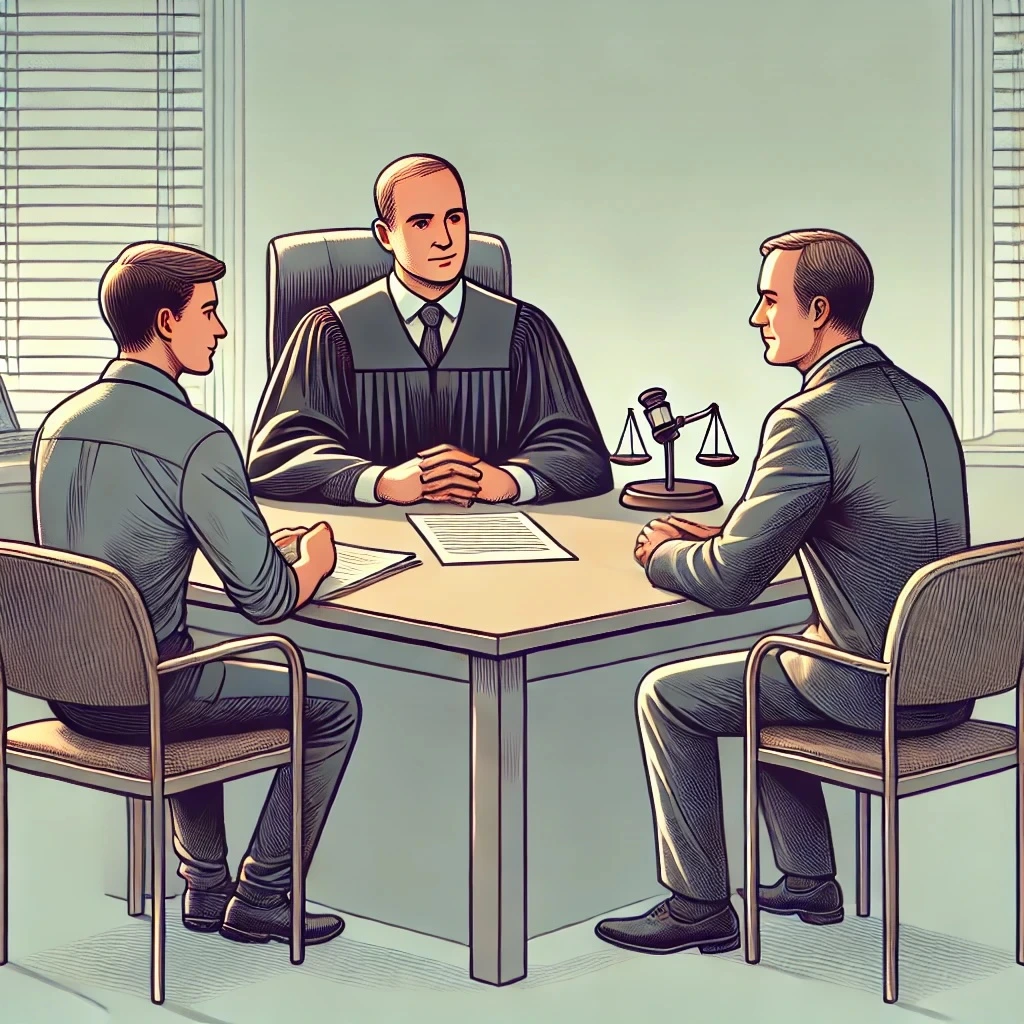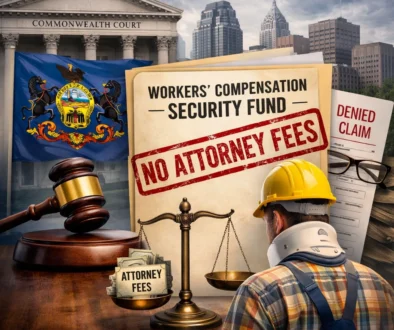Settlements In Pennsylvania Workers’ Compensation
Achieving a workers’ comp settlement in PA can seem tough. It often involves mandatory or voluntary mediation, understanding compromise and release agreements, and filing necessary forms to resolve claims.
Key Forms For Workers Compensation Settlements
LIBC-378 Petition For Compromise And Release (C&R)
This form requests a settlement approval hearing, often resulting in a lump sum payment.
LIBC-753 Notice Of Request For An Informal Conference
This form starts the informal conference process as part of the workers’ comp mediation options.
LIBC-755 Compromise And Release Agreement
This form formalizes the release agreement under Section 449 of the Workers’ Compensation Act. It may secure a lump sum settlement or other agreement for an injured worker.
Each of these forms serves a purpose in filing a claim successfully. Especially, when seeking coverage for ongoing medical treatment or wage loss benefits. Working with a qualified workers’ compensation attorney can help ensure accuracy and timely filing of all documents.

Mandatory Mediation In Pennsylvania Workers’ Compensation
How Does Mandatory Mediation Work?
In PA, mandatory mediations must occur before a workers’ compensation judge (WCJ) issues a ruling on the case. A mediating judge conducts the mediation, promoting discussions between the injured worker and the employer. Typically, a judge other than the one assigned to the case conducts the mediation. Both parties aim to reach a fair settlement without formal court proceedings, saving time and resources.
Who Needs To Attend?
Both the injured worker and employer (or their representatives, often including insurance companies) must attend the mediation process. Each party must have the authority to accept, reject, or modify settlement proposals. A successful mediation can resolve disputes about medical expenses, wage loss benefits, and other issues. Some judges do not require the attendance of the injured worker or adjuster.
Voluntary Mediation: An Alternative Option
How Does Voluntary Mediation Work?
Both parties may choose to participate in voluntary mediation, which remains optional, unlike mandatory mediation. This process allows flexibility, offering a chance to negotiate a settlement without court intervention. Injured workers can use voluntary mediation to secure a lump sum settlement or address concerns about medical expenses.
Benefits Of Voluntary Mediation
Voluntary mediation provides a less formal setting where injured workers can discuss their work injury and medical expenses. This approach helps parties reach a compromise and release, allowing for faster settlements and often lower legal costs. The parties also select the mediator of their choice.
Compromise And Release Agreements In Workers’ Comp
What Does A Compromise And Release Agreement Do?
A compromise and release (C&R) agreement legally binds injured workers and employers in settling workers’ comp claims. It may involve a lump sum payment instead of ongoing workers’ comp benefits. In PA, a WCJ must review and approve every C&R agreement. This ensures the injured worker understands the full terms and implications, especially medical expenses and future wage loss.
Essential Components Of A C&R Agreement
A valid compromise and release agreement in PA must include:
- Date of the work injury
- Worker’s average weekly wage before the injury
- Type and extent of the injury
- Payment details, including lump sum settlement amounts and coverage of any future medical expenses
- Conditions surrounding other benefits
After completing the release agreement, the employer or insurance company submits it for approval by a WCJ. The WCJ ensures the injured worker comprehends the agreement and its impact on any remaining workers’ compensation benefits.
Finality Of A Compromise And Release Agreement
Once approved, a compromise and release agreement becomes legally binding. This means the worker cannot reopen the claim. A workers’ comp lawyer can help ensure injured workers fully understand the terms. This includes the agreement’s impact on future medical care or wage benefits.
The Role Of Resolution Hearings In Workers’ Comp Settlements
What Happens At A Resolution Hearing?
In a resolution hearing, a WCJ speeds up the process by reviewing a workers’ compensation settlement. The WCJ may use this hearing for cases where both parties have already reached a C&R agreement. The judge confirms that both parties understand the agreement and makes sure it complies with Pennsylvania workers’ compensation law.
Why Are Resolution Hearings Important?
Resolution hearings help the employee understand the settlement process, particularly when both parties have reached an agreement in mediation. They offer an efficient way to finalize settlements. This ensures that injured workers receive their compensation promptly. It also ensures that the agreement accurately addresses all medical costs and wage benefits.
Setting Aside A Compromise And Release Agreement
Grounds For Setting Aside A C&R Agreement
Once the judge approves a C&R agreement, it typically becomes final. However, injured workers can appeal within 20 days.
To do so, strict guidelines exist. They must show that they did not fully understand the agreement. Or they need to prove that fraud, misrepresentation, or a mutual mistake took place.
Courts On Setting Aside Agreements
Pennsylvania courts may set aside C&R agreements for specific reasons, such as significant errors or fraud. However, courts usually uphold these agreements if they meet all requirements. Misunderstandings over settlement amounts or medical expenses usually do not justify setting aside a compromise and release.
Informal Conferences In Workers’ Comp Claims
What Does An Informal Conference Do?
An informal conference allows injured workers and employers to resolve disputes without formal litigation. An injured worker, employer, or their lawyers can file a request to start this process. The WCJ conducts the conference within 35 days. This provides a private setting where the parties can discuss their case.
Confidentiality And Informal Conferences
The informal conference process remains confidential, keeping any information exchanged during the session out of the official court record. Both parties can present their cases, discussing work injuries, medical expenses, wage losses, and possible return-to-work options. If both parties reach a resolution, they document it in LIBC-754 and file it with the Bureau of Workers’ Compensation.

Tips
Document Preparation
Completing forms such as LIBC-378, LIBC-755, and others remains vital. A workers’ comp lawyer can help ensure form accuracy.
Seek Legal Representation
Working with a workers’ compensation attorney can protect the injured worker’s rights. This becomes even more important when the settlement includes medical expenses and ongoing treatment.
Understand Medicare And Social Security Impacts
Using clear language in the agreement can help avoid issues for people approaching Medicare or Social Security.
Child Support And Domestic Obligations
If the injured worker owes child support, the Bureau of Workers’ Compensation or Domestic Relations Office may intervene. They may require the injured worker to settle any outstanding debts before approving the agreement.
Wrap Up
With the right knowledge and support, you can settle a workers’ compensation claim in PA. Mandatory and voluntary mediation, compromise and release agreements, and informal conferences offer paths to settlement. This allows the injured workers to secure compensation for medical expenses, wage losses, and other work injury-related costs. Working with a workers’ compensation attorney helps injured workers secure settlements that meet their needs and protect their future.
For a free evaluation on your case, reach out to our offices 24/7 at (215) 609-4183. We stand ready to help you get the settlement you deserve.




